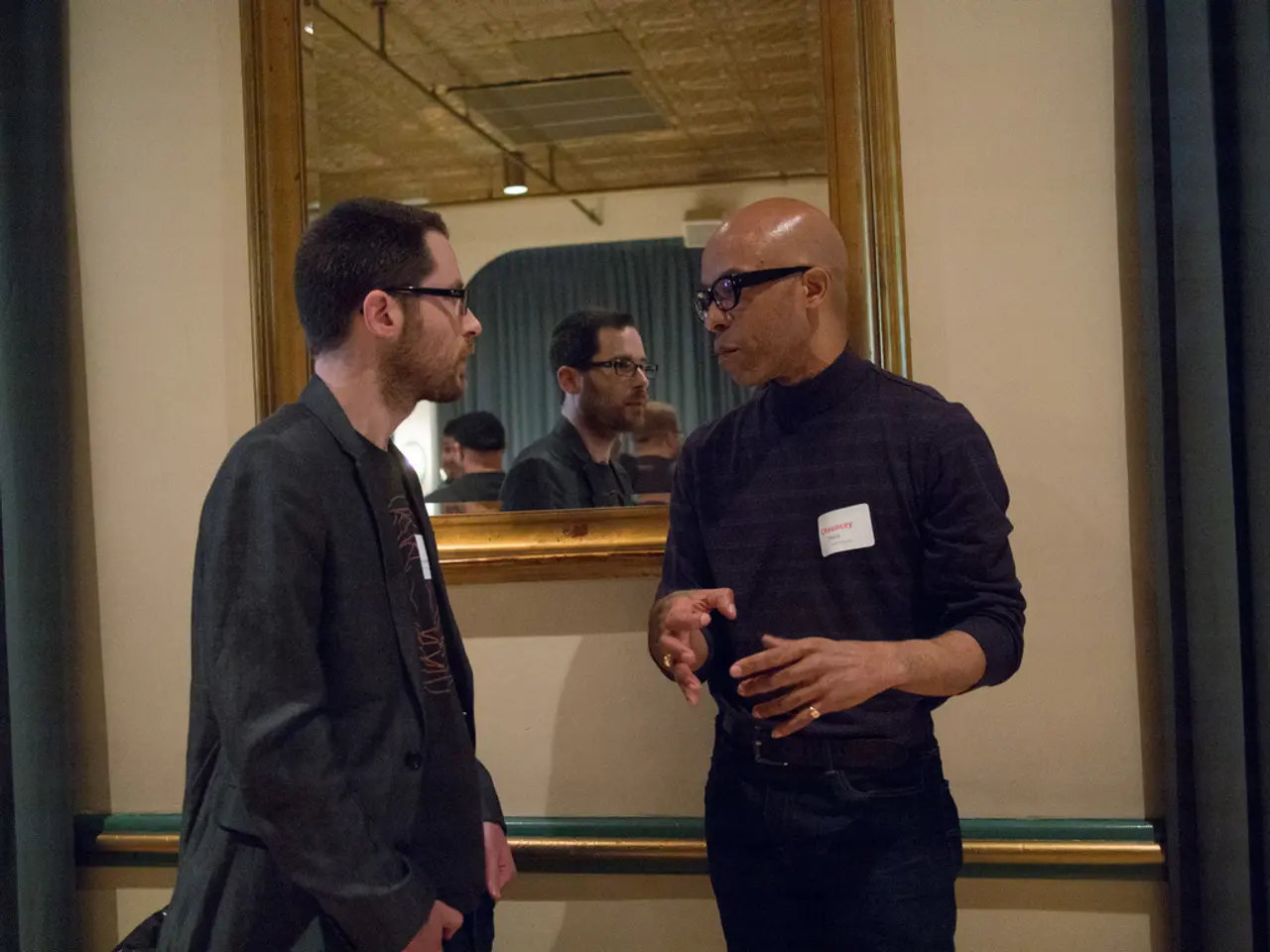AI Development for Ghanaian Languages by Paul Azunre - Unyielding Challenges Encountered Along the Way
In the heart of West Africa, Ghana is making strides in the realm of Artificial Intelligence (AI), with Dr. Paul Azunre, co-founder of Ghana NLP, leading the charge. Azunre's mission is to build natural language processing (NLP) systems for Ghanaian languages, addressing systemic inequities rather than technical constraints.
Azunre's approach to sourcing data for Ghana NLP is community-driven. He emphasises the importance of high-quality data, even if it results in smaller volumes, over large volumes of data automatically scraped by corporations. This approach has proven successful, with Ghana NLP developing the world's first machine translation and speech systems for various Ghanaian languages and even Kikuyu from Kenya, despite having fewer resources than their international counterparts.
However, the major hurdle for the work that Ghana NLP does is financial. A lack of funding to compensate people consistently for their work has been a significant challenge. Foreign corporations, foundations, and other entities are often surprised when the subject of compensation is brought up for African language projects. Azunre argues that some tech giants promote open-source ideals as a way to extract value from under-resourced regions.
Addressing these funding and compensation challenges is crucial to advancing AI development for Ghanaian and other African languages. Solutions include large-scale investments by global tech and philanthropic organisations, sustained support for Africa-led initiatives, government policy and incentives, partnerships between academia, industry, and government, and fair compensation and active inclusion of language communities.
Ghana's Minister of Communications, Digital Technology and Innovation, Samuel Nartey George, made a promise on January 31, 2025, to transform Ghana into the centre and hub of Artificial Intelligence (AI) within four years. This ambition aligns with Azunre's vision of building practical, commercial tools-apps that solve urgent local problems.
Despite the challenges, the impact of Ghana NLP's work has been far-reaching, with doctors, teachers, and startups using their tools across Africa. Working with native speakers for Ghana NLP's work has been overwhelmingly positive. However, local institutional support for their work is lacking.
The advancement of AI fails to speak to the majority of African populations, and one of the challenges in adopting AI in Africa is using it to process local languages. Translating local languages in Africa with AI is complex, and Ghana's unique linguistic diversity complicates things further.
As the world witnesses a global trend in AI, with countries like the US and China investing heavily in AI development, including the manufacturing of chips for AI processing, it is essential for Ghana to seize this opportunity and bridge the funding and compensation gaps in AI development for African languages. This combined approach can overcome resource scarcity, enhance local expertise, and foster AI solutions that are linguistically and culturally relevant.
[1] "Funding African AI: The Case of GhanaNLP" - Journal of African Data Science [2] "The State of AI in Africa" - Stanford University AI Index 2020 Report [3] "Building AI for the Majority: The Case of Masakhane" - Communications of the ACM [4] "AI Strategy for Ghana" - Ministry of Communications, Digital Technology and Innovation [5] "The AI Landscape in Africa: Challenges and Opportunities" - African Development Bank Group
- To bridge the funding and compensation gaps in Artificial Intelligence (AI) development for African languages, it's essential for Ghana to seek large-scale investments from global tech and philanthropic organizations, like those mentioned in the "AI Strategy for Ghana" and the "Funding African AI: The Case of GhanaNLP" studies.
- In the pursuit of advancing AI for Ghanaian and other African languages, partnerships between academia, industry, and government, as suggested in the "Building AI for the Majority: The Case of Masakhane" article, can foster linguistically and culturally relevant solutions, while ensuring fair compensation and active inclusion of language communities.




